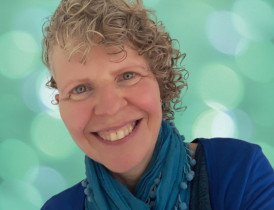Robyn Harris

In the last post we looked at how dis-ease is actually part of a wellbeing process. Now I'd like to give an example to illustrate how this works.
When we experience a traumatic event - one that is Unexpected, Dramatic, Isolating and for which we have No coping strategy (a UDIN), the stress comes into the body and is held somewhere in an organ tissue. The particular organ involved will depend on the nature of the stress but our vocabulary can often give clues - eg I couldn't swallow it / digest it; it stinks; I felt sickened; I can't get my head around it; I couldn't breathe; I couldn't bear to look; etc
Each organ relates to a particular brain relay - the Brain Stem, Cerebellum, Medulla or Cortex (this is determined by embryology- the way the baby develops in the womb) and each brain relay has its own 'meaning' or 'lesson'. Eg the brain stem is about survival, the cerebellum is about our 'nest', the medulla is about self-worth and the cortex is about separation.
As an example, I'm going to tell you a personal story related to a health condition that I struggled with for a number of years. Remember that all trauma is subjective and so it will be perceived from the individual's perspective. This can be influenced by how they're feeling on a particular day, their life experience, their gender and culture.
As I mentioned above, the brain stem relates to issues around survival. In pre-historic times this would have been literal life-or-death situations but for us today this could also include experiences where we feel very fearful, or threatened in a more 'metaphorical' way. Again it can be helpful to notice our language - events that make you say things like 'that frightened me to death', or 'nearly gave me a heart attack', or 'made me want to die', could affect the organs and tissues connected to this relay. The severity of the impact will depend on the intensity of the fear that you feel.
The story starts when I was 13 years old. My parents called my brother and myself in to the dining room saying that they had something to tell us. I happened to be in plaster from hips to ankles due to a painful knee condition (a whole other story!) and so I remember sitting on the floor with my legs straight out in front of me and my back against the wall for support. Getting up and down from the floor was an effort but sitting in a chair wasn't comfortable unless I perched on the edge and then my legs would be in the way.
Anyway, we all sat down and my Dad started to say how he and my Mum had decided to split up. This was a huge blow to me in itself but Dad then went on to say that I'd be ok because I was like him and a loner (my whole insides rebelled at this - I felt that I was not a loner out of choice, it was just that I found it hard to make friends, and that actually I was very lonely and unhappy at school). He then turned to my brother and said that he'd be ok as he was my Mum's favourite!
Bang - a UDIN! I felt that all the stuffing had been knocked out of me. I wanted to cry, to run away, to be anywhere but there listening to what felt like the end of the world... I felt completely alone and rejected. The primitive parts of my brain - my brain stem - interpreted this as being cast out from my tribe, an almost certain death sentence, since alone I would be without shelter and less likely to find food or water. (This part of our brain has not kept up with evolution and things like single parent families, supermarkets or indoor plumbing!)
In the next blog I'll explain more about what happened next and how this UDIN created dis-ease in my body.
If you'd like to talk with me about anything I've mentioned above, please get in touch:
07980 669303
Alternatively you can see more about what I do on my website: www.equenergy.com
(This post was taken from my article on META-Health. You can read the full text here)
Are you wondering about networking but feeling nervous about it?
Our FREE guide will help you to feel comfortable and confident when networking - even if you're an introvert!
Download your FREE guide now